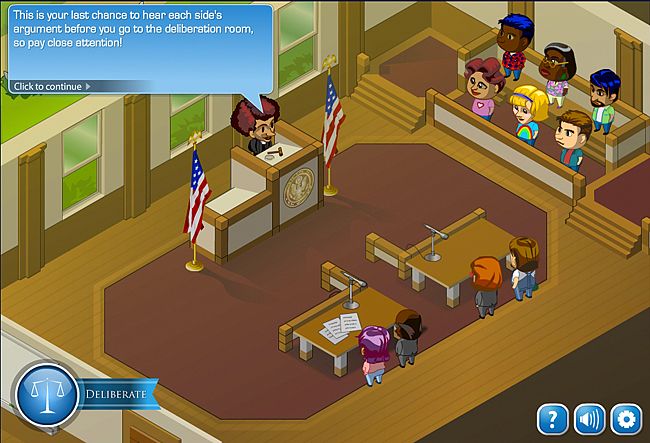Sixth-grader Charles Simpson is both ambitious and altruistic in his intentions: “I’m trying to run for president to help America get a better future.”
The student at Harlem's Future Leaders Institute (FLI) Charter School is playing the iCivics video game, “Win the White House.”
"Win the White House" is one of more than 20 games that are part of a web-based educational project designed to reinvigorate civics (the study of the rights and duties of citizenship) being taught in America’s schools.
iCivics was the brainchild of former Supreme Court Justice Sandra Day O’Connor.
Dreaming about bringing civics back into the classroom, O'Connor formed a nonprofit civics education group with the help of the MacArthur Foundation.
Beginning in a South Carolina school district in 2010, the iCivics program has now rolled out to more than 6 million students in all 50 states.
“iCivics has been an effective way to reach young people and to give them an enhanced capacity to have critical thinking of their own,” O'Connor said.
Sixty thousand teachers are registered to access the web and print the resources that make up the program. Filament Games, a learning games company in Wisconsin, designed the games for iCivics.
In addition to “Win the White House,” a full menu of games deals with the rights of individuals, the various branches of power that make up government on all levels, immigration issues, becoming a member of Congress, the Bill of Rights, the Constitution, and, of course, how the Supreme Court works in a game called “Supreme Decision.”
“It teaches students how to prepare for the real world and how to prepare, such as, if they want to run for president. It prepares them on what you need to learn, what you need to actually do to get yourself to that state that you want to achieve,” 11-year-old Jaylah Williams said.
VOA










